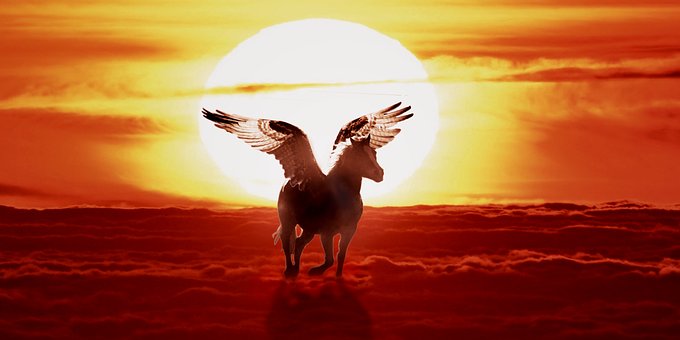Procrastination: Alcohol, Drugs and You
November 1, 20143 Little Words
November 15, 2014Turn A Phrase
There are so many phrases we commonly use without any knowledge of their origins and the meanings or symbolism behind each. Here are just a few examples to better educate us all as we move forward. Always remember that what you say has meaning and your voice is very important. Enjoy!
ON THE WAGON
This was coined in the USA around the turn of the 20th century. The phrase began as ‘on the water-cart’, migrated to ‘on the water-wagon’ and finally to ‘on the wagon’. The late 19th century saw the emergence of several temperance organizations, notably The Anti-Saloon League, founded in 1893 and The Woman’s Christian Temperance Union, founded in 1874. These followed on from the work of The Abstinence Society which had encouraged millions of men to ‘take the pledge’. The Pledge wasn’t just a vague intention to avoid drink; it was a specific and absolute promise never to drink again and was taken very seriously
TEETOTALLER
Teetotalism is the practice or promotion of complete personal abstinence from alcoholic beverages. A person who practices (and possibly advocates) teetotalism is called a teetotaler or is simply said to be teetotal. The teetotalism movement was first started in Preston, England in the early 19th century. The Preston Temperance Society was founded by 1833 by Joseph Livesey, who was to become a leader of the temperance movement and the author of The Pledge: “We agree to abstain from all liquors of an intoxicating quality whether ale, porter, wine or ardent spirits, except as medicine.”
A SHOT OF WHISKEY
In the old west a .45 cartridge for a six-gun cost 12 cents, so did a glass of whiskey. If a cowhand was low on cash he would often give the bartender a cartridge in exchange for a drink. This became known as a “shot” of whiskey.
THE WHOLE NINE YARDS
American fighter planes in WW2 had machine guns that were fed by a belt of cartridges. The average plane held belts that were 27 feet (9 yards) long. If the pilot used up all his ammo he was said to have given it the whole nine yards.
BUYING THE FARM
This is synonymous with dying. During WW1 soldiers were given life insurance policies worth $5,000. This was about the price of an average farm so if you died you “bought the farm” for your survivors.
IRON CLAD CONTRACT
This came about from the ironclad ships of the Civil War. It meant something so strong it could not be broken.
PASSING THE BUCK/THE BUCK STOPS HERE
Most men in the early west carried a jack knife made by the Buck knife company. When playing poker it as common to place one of these Buck knives in front of the dealer so that everyone knew who he was. When it was time for a new dealer the deck of cards and the knife were given to the new dealer. If this person didn’t want to deal he would “pass the buck” to the next player. If that player accepted then “the buck stopped there”.
RIFF RAFF
The Mississippi River was the main way of traveling from north to south. Riverboats carried passengers and freight but they were expensive so most people used rafts. Everything had the right of way over rafts which were considered cheap. The steering oar on the rafts was called a “riff” and this transposed into riff-raff, meaning low class.
SHIP STATE ROOMS
Traveling by steamboat was considered the height of comfort. Passenger cabins on the boats were not numbered. Instead they were named after states. To this day cabins on ships are called staterooms.
SHOWBOAT
These were floating theaters built on a barge that was pushed by a steamboat. These played small town along the Mississippi River. Unlike the boat shown in the movie “Showboat” these did not have an engine. They were gaudy and attention grabbing which is why we say someone who is being the life of the party is “showboating”.
OVER A BARREL
In the days before CPR a drowning victim would be placed face down over a barrel and the barrel would be rolled back and forth in an effort to empty the lungs of water. It was rarely effective. If you are over a barrel you are in deep trouble.
BARGE IN
Heavy freight was moved along the Mississippi in large barges pushed by steamboats. These were hard to control and would sometimes swing into piers or other boats. People would say they “barged in”.
HOGWASH
Steamboats carried both people and animals. Since pigs smelled so bad they would be washed before being put on board. The mud and other filth that was washed off were considered useless “hog wash”.
CURFEW
The word “curfew” comes from the French phrase “couvre-feu”, which means “cover the fire”. It was used to describe the time of blowing out all lamps and candles. It was later adopted into Middle English as “curfeu”, which later became the modern “curfew”. In the early American colonies homes had no real fireplaces so a fire was built in the center of the room. In order to make sure a fire did not get out of control during the night it was required that, by an agreed upon time, all fires would be covered with a clay pot called-a “curfew”.
HOT OFF THE PRESS
As the paper goes through the rotary printing press friction causes it to heat up. Therefore, if you grab the paper right off the press it is hot. The expression means to get immediate information.
“The catch phrase for the day is: Do an act of kindness. Help one person smile.” — Harvey Ball



